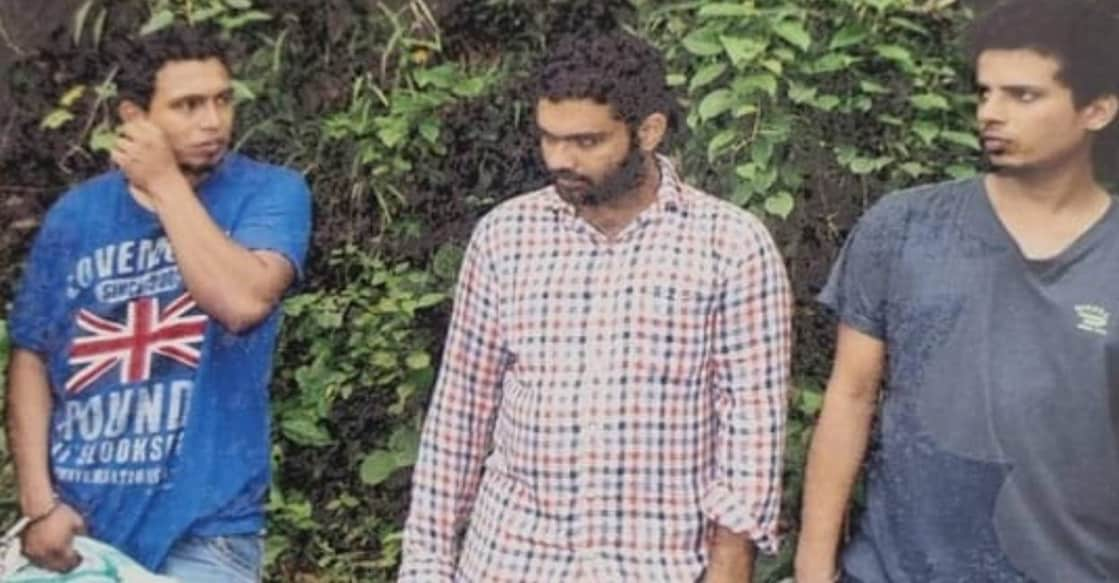'Kasaragold' murders: Mangaluru court gives 3 Keralites life for killing gold mule, friend

Mail This Article
Mangaluru/ Kasaragod: Nearly 11 years after two Malayalis were murdered in Mangaluru and buried in Kasaragod over sharing the spoils of smuggled gold, a sessions court in Mangaluru sentenced the three accused to triple life sentences each — in a case that began in friendship and spiralled into greed, betrayal, and double-crossing.
The victims were Nafir Ahamed (24), a native of Thalassery in Kannur who smuggled in 3kg of gold from Dubai, and his friend Faheem (25), from Kuttichira in Kozhikode, who helped him sell it.
The accused — Mohammed Mahajeer Sanaf (36), son of a prominent lawyer from Cherkala near Kasaragod; Mohammed Irshad (35); and A Mohammed Safwan (34), both from Anangoor in Kasaragod town — were found guilty of conspiracy (Section 120B IPC), double murder (Section 302 IPC), and destruction of evidence (Section 201 IPC).
On Saturday, April 19, Additional Sessions Court-I Judge Mallikarjuna Swamy H S sentenced each of them to life imprisonment for conspiracy, two life terms for the murders of Faheem and Nafir, and an additional three years for destruction of evidence.
"The court also fined them Rs 65,000 each. If the fine isn’t paid, they will have to serve another 17 months in prison," said public prosecutor Judith OM Crasta, quoting the judgment. All sentences will run concurrently, she said.
Though the murders took place in 2014, the accused were out on bail during the lengthy investigation and trial. They were taken into custody after the court found them guilty on April 9.
The Crime and the Conspiracy
In June 2014, Nafir landed at Mangaluru Airport with 3kg of gold. But instead of delivering it to his handlers, he decided to keep it—believing it was his ticket to a better life. He contacted Faheem, who ran a readymade garments business in Mangaluru and Kasaragod, for help in finding buyers. Faheem introduced him to his friend Mohammed Mahajeer Sanaf.

"Sanaf came from a well-off family. His father was a lawyer, and he had enrolled in law college but later dropped out," said prosecutor Crasta.
Sanaf then roped in his friends Irshad and Safwan. All five men were in their mid-20s at the time. Sanaf helped sell about 2.5kg of the gold to jewellery shops in Kasaragod for ₹73 lakh. But instead of handing over the money to Nafir, he said he would give it to him in parts, as and when required. This led to friction. Nafir started demanding a full account of the sale and his share of the money.
"As Nafir became more insistent, Sanaf decided to eliminate him and keep the money," said Adv Crasta, explaining the motive for the crime. At the same time, the original smugglers got wind of the gold being sold and began pressuring Sanaf to return it, she said.
On June 14, 2014, Sanaf rented a two-bedroom flat in Attavar, Mangaluru. Meanwhile, Safwan also purchased a 10-cent agricultural plot at Maruthadukkam, a remote and overgrown area about 5km from Kundamkuzhy in Bedadka panchayat — using money from the gold sale.
On July 1, the three accused lured Nafir and Faheem to the rented flat. There, they stabbed both to death. The next day, they packed the bodies in plastic gunny bags and loaded them into a Kasaragod-registered Renault Duster, along with a blood-soaked mattress.
They drove to the Maruthadukkam plot and buried the bodies in a rainwater harvesting pit. On the way, they dumped the mattress in the Chandragiri River, said police.
They cleaned the flat but still had another blood-soaked mattress to get rid of. They cut it into 9 to 10 pieces for easier disposal.
But what they didn’t know was that neighbours in Attavar had noticed something off that night. They had seen blood stains near the door and heard commotion. "The watchman also saw the three accused loading two large bundles into the SUV," said the prosecutor.
At the time, Mangaluru was under alert for Naxal activities, and the neighbours quickly called the police. The then City Police Commissioner R Hitendra put his informers on the job. On July 6, they spotted the Renault Duster near the flat. A City Crime Branch (CCB) team led by Inspector Valentine D’Souza intercepted the vehicle at the Mahakalipadpu railway level crossing and arrested the three accused.
Inside the vehicle, the forensic team found blood stains on the back seats and boot carpet. In the flat, they found blood on the beds, walls, and pillows, along with bed sheets soaked in blood and the cut-up mattress. They also recovered a petrol bottle — the accused had planned to burn the remaining evidence.
A Rainy Day, a Gruesome Discovery
On July 7, Inspector Valentine D’Souza took the accused and a police team to Maruthadukkam. On a rainy day, locals with umbrellas trudged through overgrown farmland to witness the cold-blooded crime unravel.
Dr Mahabalesh Shetty, Head of Forensic Medicine at KS Hegde Medical Academy in Mangaluru, exhumed the bodies in the presence of the Kasaragod Tehsildar. In his autopsy report, Dr Shetty said the victims’ hands and feet were tied tightly behind their backs. They were stabbed on both sides of their necks with a 27cm steel knife and bled to death.
"The mattresses were used to soak up the blood," said prosecutor Crasta.
Dr Shetty performed the autopsies on the spot, and the bodies were handed over to their families that evening.
Police recovered the murder weapon, 2.5kg of gold sold to various jewellery shops, and another 200g from Sanaf’s house.
The police never recovered the Rs 73 lakh made from the sale of the gold. However, they did recover the ₹1.20 lakh that Sanaf had paid as a deposit for the flat in Attavar. They also did not investigate the original smugglers for whom Nafir Ahamed had brought the gold, despite reports that they had contacted Sanaf after the sale.
In total, the court examined 97 documents, 79 material objects, and 47 witnesses — including Dr Shetty and forensic experts from Bengaluru.
At the sentencing, Judge Mallikarjuna Swamy asked that Nafir Ahamed’s mother, Ayesha, be present in court. After pronouncing the judgment, he ordered the Dakshina Kannada District Legal Services Authority to pay her ₹1.2 lakh in compensation.


